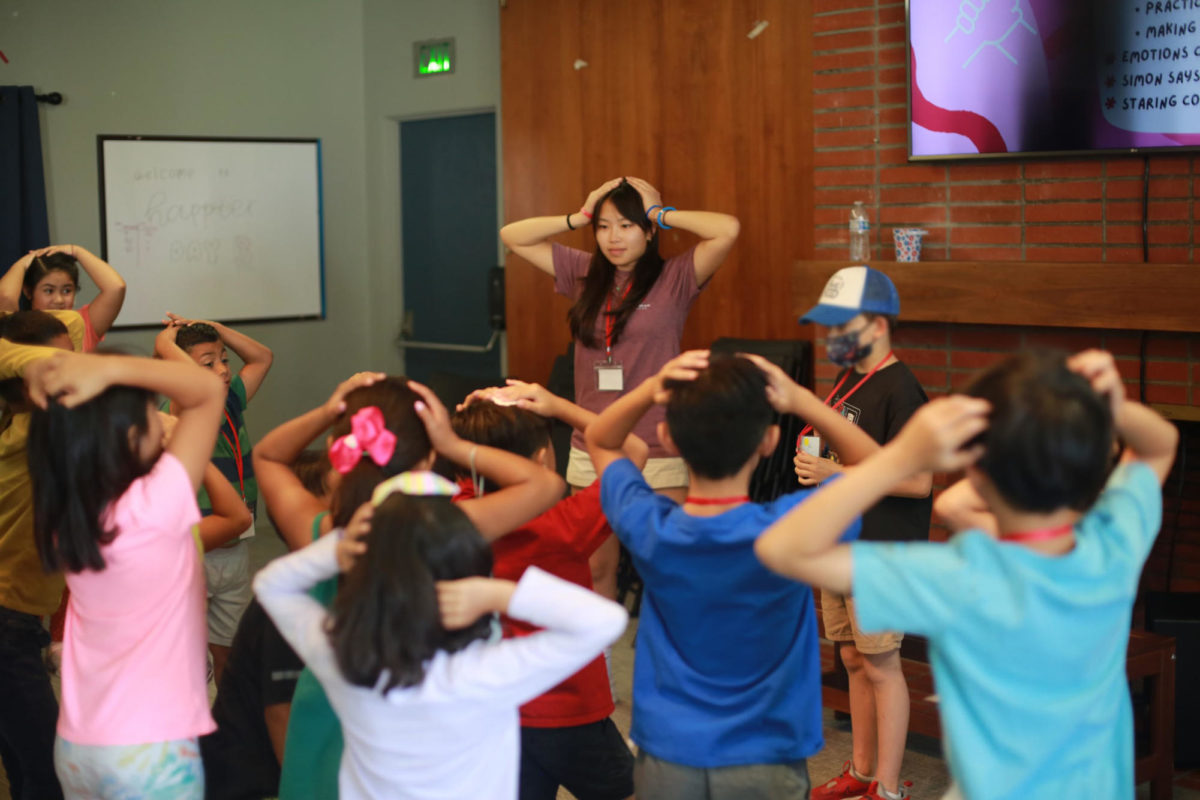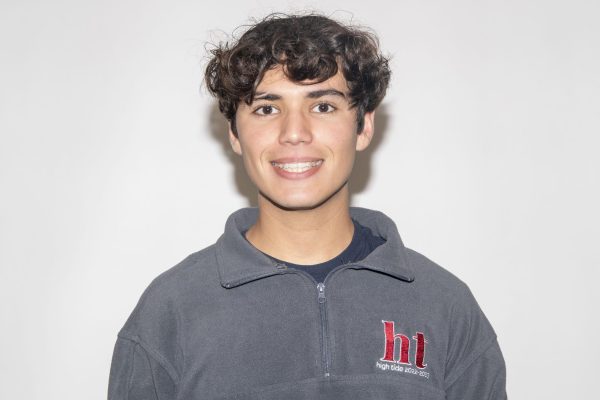A bike can open up the world for a child, allowing them to have the control to steer their life in any direction. Likewise, senior Thi Chan hopes to inspire kids to take charge of their mental outlook and adopt “a mindset geared towards happiness” with her Dragon Kim Challenge, Happier: A Journey of Self Discovery.
“A lot of times we have a really negative outlook on life, and [Happier: AJSD] is the exact opposite of that. It’s happiness and being happy and being positive, and these ideas are ultimately relevant to every single person,” Chan said.
Chan has been working since October 2022 to organize a program that teaches children mental health habits and inspires a happiness-oriented lifestyle, culminating in three camps, an interactive workbook and a virtual wellness platform.
Chan’s curriculum centers on positive psychology and especially the wellness wheel, with her focus on the five parts of emotional, spiritual, physical, social and intellectual wellness. Represented in the project logo, a bent “happier” and the wellness wheel (which forms the wheels of a bike) create a happy face.
“This bike is your mechanism to happiness. The wheels of the bike are meant to be the wellness wheel, and if you balance the different aspects of wellness, you’re on your journey to achieving happiness,“ Chan said.
The Dragon Kim Challenge and Fellowship were established to empower young people to pursue their dreams of helping others. Chan was first involved in three training weekends with the Dragon Kim Challenge, which involved pitching her project, a ropes course, and learning business skills to manage her budget.
Out of 400 applicants, Chan was one of the 47 chosen to receive $5,000 dollars to fulfill their project outlines.
Over several months, Chan meticulously planned the specifics of how she would run her program. This involved plenty of drafting, consulting and often “grinding,” but in the end, it was “so rewarding.”
“You have to [plan] the exact logistics behind each thing you do. You have to specify what your mission is and how you’re gonna execute it. You have to be very detailed,” Chan said.
Chan’s camp, hosted over three sessions in the summer, reached around 180 kids between 5 and 14 years old. To help run the camps, Chan also enlisted the help of volunteers such as senior Liam Smith.
“It was fun. They were little kids so they were a little hard to keep on track, but we saw some light bulbs go off with them. It’s exciting to see them start to learn,” Smith said.
Happier: AJSD also includes a workbook paired with a virtual wellness platform where “reflection is a big part.” The virtual wellness platform accompanies many of the activities in the workbook, providing greater depth and broadening Happier: AJSD’s accessibility. Senior Noah Weiss worked along with Chan to design and develop the website.
“[It’s] her words up on the page, and I helped organize it for her. While she was working on the camp, I was behind the scenes getting this website set up so that she could have it for her project,” Weiss said. “This is a passion project for her, and since it’s her project and since Dragon Kim gives her funding, everything that she wants, all of her passions, she can basically put in here in this project.”
Chan initially set out to help kids develop their mental health skills, but she feels she also benefited from the process.
“I learned so many things from these kids. You could just see how much it impacted them and how much they appreciat[ed] it. And just getting to [interact] with them and talk and work with them was a blast. They taught me so much more than they [realize],” Chan said.
Chan hopes to cultivate a broader spirit of positive aid where on top of helping themselves, her students will also become happier ambassadors and help others.
“Kids who have completed the program and who are fully educated on the happier philosophy [will then] realize that they can go into the world and teach other people how to be happier, and build a community of happier ambassadors,” Chan said.
Ultimately, Chan seeks to empower as many people as possible to fulfill their potential for happiness.
“If you develop these tools, the toolkit for happiness, and once you’ve developed these skills, you’re really able to put yourself in that mindset to be happy,” Chan said. “I just want kids to realize that they really have a hold on their future, that you really can choose how happy you are.”




